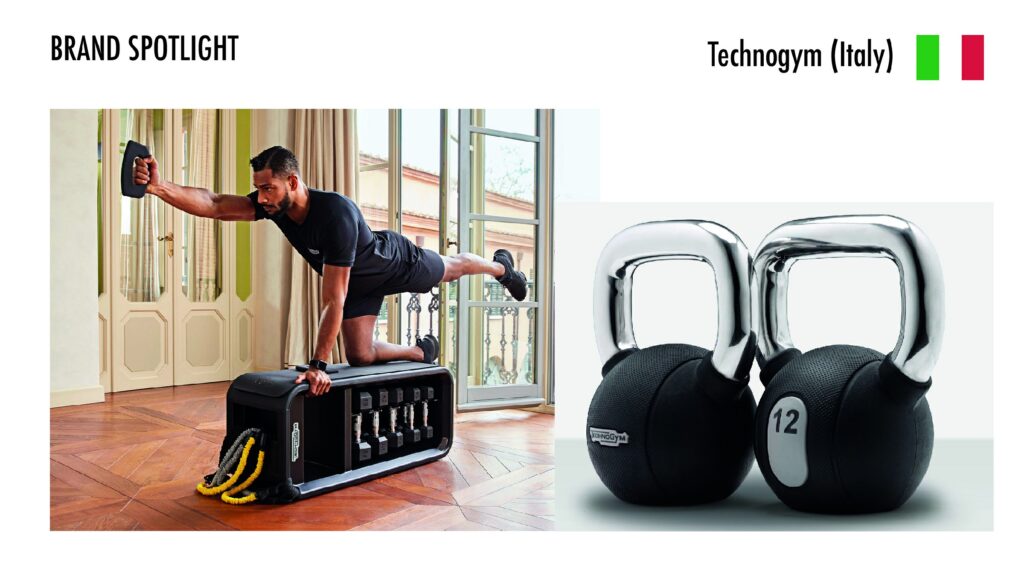
Marketing for Fitness Products and home gym
In the fast-paced world of health and wellness, marketing for fitness products is a crucial aspect of connecting with consumers and standing out from the competition. The fitness industry is continuously evolving, and companies must adapt their marketing strategies to cater to the ever-changing demands of customers. Whether you’re promoting workout gear, home gym equipment, or sports nutrition, understanding the market’s intricacies and capitalizing on the right trends can make all the difference.

In today’s health-conscious world, the fitness products and home gym market has experienced an unprecedented surge, as individuals globally seek innovative ways to maintain their wellbeing. With a plethora of products and services catering to diverse needs, marketing for fitness products has become an art form, capturing the essence of a lifestyle that transcends mere physical exercise.
As the lines between work and personal life continue to blur, individuals are increasingly seeking solace in home gym setups, where they can engage in strength training, flexibility exercises, and cardio workouts within the comfort of their private sanctuary. The demand for compact and versatile fitness equipment, such as resistance bands, adjustable dumbbells, and yoga mats, has skyrocketed, with consumers seeking efficient and convenient solutions for their space constraints. Lifestyle Brands that have astutely recognized these evolving preferences have managed to carve a niche for themselves in the dynamic fitness landscape.
The fitness product and home gym equipment market
In tandem with the rise of home gyms, the wearable technology market has also witnessed exponential growth. Fitness trackers and smartwatches have become indispensable accessories for the modern fitness enthusiast, providing real-time data on their heart rate, sleep patterns, and physical activity levels. These devices, in conjunction with fitness apps, have emerged as powerful motivators, fostering a sense of accountability and spurring individuals to push their boundaries.
The sports nutrition segment has also experienced a renaissance, with an increased focus on plant-based and clean-label products catering to a growing segment of health-conscious consumers. From protein powders and supplements to energy bars and hydration solutions, sports nutrition brands have embraced the challenge of delivering efficacious and palatable options that align with diverse dietary preferences and needs.
As the fitness industry forges ahead, marketing for fitness products has emerged as a critical differentiator, enabling brands to establish their unique identity and appeal to their target audience. In an era of digital connectivity, social media platforms have become indispensable tools for promoting fitness products, with influencers and lifestyle brand ambassadors playing a pivotal role in shaping consumer perceptions. By crafting compelling narratives around topics such as functional fitness, bodyweight exercises, and active wear, brands can captivate their audience and foster a sense of belonging and loyalty.

The burgeoning fitness products and home gym market have also spawned a plethora of innovative startups, offering an array of niche solutions and experiences that cater to diverse needs. From boutique fitness studios that deliver immersive workouts to virtual reality-driven exercise programs, these novel offerings are redefining the way we perceive fitness and well-being.
As we navigate the ever-evolving world of fitness products and home gyms, the importance of striking a balance between form and function becomes increasingly apparent. While the allure of cutting-edge technology and sleek designs may be irresistible, the efficacy and practicality of fitness products should remain paramount. For discerning consumers, the quest for the perfect fitness solution is a deeply personal and transformative journey, shaped by their individual goals, preferences, and aspirations.
Trends in the Fitness Products Industry
The fitness products industry has witnessed tremendous growth in recent years, driven by an increasing global focus on health and wellness. This upswing has prompted businesses and entrepreneurs to invest in innovative solutions and marketing for fitness products. In this article, we will explore the latest trends in the fitness products industry, ranging from connected home gyms to eco-friendly fitness gear, and what they mean for the future of the industry.
Connected Home Gyms
The integration of smart technology in home gyms has become a game-changer in the fitness industry. Connected fitness equipment, such as treadmills, stationary bikes, and strength training machines, provide users with real-time data, personalized workouts, and progress tracking. This trend has fueled the growth of companies like Peloton, Tonal, and MYXfitness, which have carved a niche in the market by offering seamless, tech-driven fitness experiences.
Wearable Fitness Technology
Wearable fitness technology, including smartwatches, fitness trackers, and heart rate monitors, has seen continuous growth and development. The latest devices boast features like sleep tracking, stress management, and personalized workout recommendations. These devices have become essential tools for fitness enthusiasts to monitor their daily activities and improve their overall health.
On-Demand Fitness Classes
On-demand fitness classes are reshaping the way people work out. Platforms like Les Mills On Demand, Beachbody, and Fitbit Premium offer a plethora of workout options that cater to different fitness levels and preferences. These digital platforms allow users to access a variety of classes, from HIIT to yoga, at their convenience, making fitness more accessible and flexible than ever before.
Sustainable Fitness Products
As environmental consciousness continues to rise, consumers are increasingly seeking eco-friendly alternatives in various aspects of their lives, including fitness. This has led to the introduction of sustainable fitness products, such as recycled yoga mats, biodegradable resistance bands, and ethically-sourced activewear. Companies that prioritize sustainability in their manufacturing and marketing strategies are well-positioned to tap into this growing consumer demand.
Immersive Fitness Experiences
Virtual reality (VR) and augmented reality (AR) technologies have started making their way into the fitness industry, offering immersive workout experiences that blend entertainment and exercise. From VR-enhanced spin classes to AR-guided running apps, these technologies are transforming traditional workout routines and providing users with unique and engaging fitness experiences.
Mindfulness and Mental Health
The focus on mental health and wellness has become more pronounced in the fitness industry. Fitness apps and programs now often incorporate mindfulness practices, such as meditation and deep breathing exercises, alongside physical workouts. This trend is a response to the growing understanding that physical and mental health are interconnected, and that a holistic approach to wellness is essential for overall well-being.
Functional Training and Home Gym Equipment
Functional training has gained popularity as it emphasizes exercises that replicate everyday movements and improve overall fitness. This shift has led to an increased demand for versatile home gym equipment, such as adjustable dumbbells, kettlebells, and resistance bands. These compact, multi-purpose tools enable users to perform a variety of exercises, targeting different muscle groups, without requiring a large dedicated space.
Personalized Fitness and Nutrition
Personalization is a key trend in the fitness industry, with companies offering tailored workout and nutrition plans based on individual goals, preferences, and genetic profiles. DNA testing kits, for instance, can provide insights into a person’s unique nutritional needs and predispositions, allowing them to optimize their diet and exercise routines for better results.

Fitness Products Consumer Behavior and Buyer Types
As the fitness industry continues to flourish, understanding consumer behavior and buyer types has become essential for businesses to succeed in marketing fitness products.
Health-Conscious Buyers
These individuals are primarily motivated by the desire to improve their physical and mental well-being. They seek high-quality fitness products that align with their goals, often opting for connected home gyms, smart fitness technology, and personalized fitness programs. To effectively market to this group, companies should emphasize the health benefits of their products, the latest technology, and the ability to tailor workouts to individual needs.
Eco-Friendly Enthusiasts
Sustainability and environmental consciousness have become significant considerations for many consumers when purchasing fitness products. This buyer type values eco-friendly materials, ethical manufacturing processes, and the overall environmental impact of the products they use. Companies targeting this segment should invest in developing sustainable products and incorporate eco-friendly messaging in their marketing campaigns.
Value-Driven Consumers
Value-driven consumers seek cost-effective, reliable, and practical fitness products without compromising on quality. These buyers are often drawn to versatile home gym equipment, such as adjustable dumbbells, resistance bands, and kettlebells, as they provide multiple functions without occupying significant space. Companies marketing fitness products to this audience should emphasize affordability, durability, and the versatility of their offerings.
Time-Crunched Individuals
The time-crunched buyer seeks fitness solutions that can be easily incorporated into their busy schedules. They often gravitate towards on-demand fitness classes, mobile apps, and wearable technology that allow them to track their progress and maintain their fitness routine on-the-go. To appeal to this buyer type, companies should highlight the convenience, flexibility, and time-saving aspects of their fitness products.
Social Fitness Enthusiasts
This buyer persona enjoys the social and interactive aspects of fitness. They appreciate group classes, fitness challenges, and workout communities that encourage camaraderie and motivation. For this group, fitness is as much about the experience as it is about the results. Companies should leverage social media platforms, gamification, and community-building strategies in their marketing efforts to attract and engage this audience.
Luxury Fitness Aficionados
The luxury fitness aficionado values high-end, aesthetically pleasing fitness products that make a statement. This buyer type is willing to invest in top-tier equipment, designer activewear, and exclusive fitness experiences. To effectively market to this segment, companies should emphasize the premium quality, stylish design, and exclusivity of their products.
Holistic Wellness Seekers
Holistic wellness seekers are interested in fitness products that contribute to their overall well-being, including physical, mental, and emotional health. They often embrace practices like yoga, meditation, and mindfulness, in addition to their physical workouts. Companies targeting this buyer persona should incorporate elements of holistic wellness into their marketing strategies, such as emphasizing the mind-body connection and the importance of mental health.

Innovative Fitness Product Lifestyle Brands Revolutionizing the Industry
Introduction
The fitness industry has experienced tremendous growth in recent years, fueled by an increasing emphasis on health and wellness. With this surge in demand, several innovative fitness product brands have emerged, offering cutting-edge solutions and unique marketing strategies that set them apart from the competition. In this article, we will explore five such brands that are revolutionizing the industry with their innovative approach to marketing fitness products.
Peloton
Peloton has become synonymous with home fitness, thanks to its innovative indoor cycling bikes that provide a boutique studio experience in the comfort of users’ homes. Their interactive platform streams live and on-demand classes led by world-class instructors, creating an immersive and engaging fitness experience. Peloton’s marketing strategy leverages a strong online presence, social media influencers, and testimonials from its passionate user base. The brand has successfully created a sense of community and loyalty among its customers, making it a trailblazer in the connected fitness products market.
Tonal
Tonal is revolutionizing the home gym space with its innovative digital weight system that uses electromagnetics to create resistance. The sleek, wall-mounted device offers personalized strength training workouts and real-time coaching, adapting to users’ fitness levels and goals. Tonal’s marketing strategy focuses on showcasing the benefits of its space-saving design, advanced technology, and versatility in catering to different fitness needs. By positioning itself as a smart, all-in-one solution for home fitness, Tonal has quickly become a major player in the industry.
Whoop
Whoop is an innovative fitness wearable brand that offers a unique approach to performance tracking and recovery. The Whoop Strap measures various biometric data, such as heart rate variability, sleep quality, and strain, to provide users with personalized insights into their overall fitness and recovery needs. Whoop’s marketing strategy emphasizes the importance of data-driven decision-making and how its product can help users optimize their performance and prevent overtraining. With high-profile partnerships and endorsements from professional athletes, Whoop has established itself as a leader in the wearable fitness technology market.
Gymshark
Gymshark is a UK-based activewear brand that has experienced rapid growth due to its innovative designs, high-quality materials, and unique marketing strategy. The brand’s success can be attributed to its strong online presence, particularly on social media, where it has leveraged influencer marketing to reach a global audience. Gymshark’s collaborations with fitness influencers have not only expanded its customer base but also created a loyal community of fans who actively engage with the brand. This approach to marketing fitness products has allowed Gymshark to stand out in the crowded activewear market and become a household name among fitness enthusiasts.
Technogym
Technogym, an Italian fitness equipment manufacturer, has been at the forefront of innovation for over three decades. With its extensive range of high-quality cardio and strength equipment, Technogym caters to both commercial and home gym markets. The company’s innovative “Wellness Ecosystem” combines connected fitness equipment with digital solutions, such as the Mywellness app, allowing users to access personalized workouts, track progress, and sync data with other fitness apps.

Successful Marketing Strategies for Fitness Products
In today’s competitive fitness market, businesses must develop effective marketing strategies to stand out from the crowd and appeal to their target audience. Understanding the best practices in marketing for fitness products is crucial for creating a strong brand identity, engaging potential customers, and driving sales. In this article, we will explore several successful marketing strategies that have been proven to deliver results in the fitness industry.
Identify and Understand Your Target Audience
Before developing a marketing strategy, it’s essential to identify and understand your target audience. This involves determining the demographics, preferences, and motivations of your ideal customers. Creating buyer personas can help you tailor your marketing messages to resonate with different audience segments, ensuring that your efforts are more likely to lead to conversions.
Develop a Strong Online Presence
Having a strong online presence is critical for businesses in the fitness industry, as customers increasingly rely on digital channels to research products and make purchasing decisions. This includes having a professional, user-friendly website with clear calls to action, engaging content, and seamless e-commerce functionality. Additionally, search engine optimization (SEO) should be a priority to improve your website’s visibility on search engines, making it easier for potential customers to find your products.
Leverage Social Media
Social media platforms, such as Instagram, Facebook, and YouTube, are invaluable tools for marketing fitness products. These channels allow businesses to showcase their products, share engaging content, and interact directly with their audience. To make the most of social media, fitness companies should develop a consistent posting schedule, utilize hashtags to increase visibility, and collaborate with influencers to reach new audiences.
Content Marketing
Content marketing is a powerful strategy for building brand awareness, establishing credibility, and driving organic traffic to your website. By creating and sharing valuable content, such as blog posts, articles, videos, and infographics, you can position your brand as an authority in the fitness industry. This approach not only attracts potential customers but also helps improve your website’s SEO, as search engines prioritize high-quality, relevant content.
Influencer Marketing
Influencer marketing is an increasingly popular strategy in the fitness industry, as it offers a highly effective way to reach and engage with your target audience. Collaborating with fitness influencers can help you tap into their loyal following, increase brand visibility, and generate valuable user-generated content. When selecting influencers to work with, consider their audience demographics, engagement rate, and overall brand alignment to ensure a successful partnership.

Email Marketing
Email marketing remains a highly effective channel for promoting fitness products, as it allows businesses to maintain direct communication with their audience. By building a segmented email list, you can send targeted campaigns that promote new products, share exclusive offers, or deliver valuable content. To optimize your email marketing efforts, focus on personalization, responsive design, and engaging subject lines that encourage recipients to open and read your messages.
Host Events and Workshops
Hosting events and workshops, either in-person or online, can be a powerful marketing strategy for fitness products. These events provide an opportunity for potential customers to interact with your products, ask questions, and learn more about your brand. Furthermore, events and workshops can generate buzz on social media, attract media coverage, and create networking opportunities that can lead to valuable partnerships.
Offer Exclusive Promotions
Exclusive promotions, such as discounts, free shipping, or bundle deals, can be highly effective in driving sales for fitness products. By offering limited-time incentives, you create a sense of urgency that encourages customers to make a purchase. Be sure to promote these offers through multiple channels, including social media, email marketing, and your website, to maximize visibility and reach.
Measure and Analyze Your Results
An essential aspect of successful marketing for fitness products is measuring and analyzing the results of your efforts. This involves tracking key performance indicators (KPIs), such as website traffic, conversion rates, social media engagement, and email open rates. By regularly monitoring your marketing campaigns, you can identify what is working well and make data-driven decisions to optimize your strategies.
Using analytics tools, such as Google Analytics, social media insights, and email marketing platforms, can help you gain valuable insights into your audience’s behavior and preferences. This information can be used to refine your marketing efforts and tailor your messaging to better resonate with your target audience.
Foster a Strong Brand Identity
Creating a strong brand identity is crucial for standing out in the crowded fitness industry. Your brand identity should be reflected in all aspects of your marketing, from your website design and social media presence to your packaging and customer service. A cohesive and consistent brand identity helps build trust, recognition, and loyalty among your audience, ultimately contributing to the long-term success of your fitness business.
By implementing these successful marketing strategies, fitness companies can effectively promote their products, engage with their target audience, and drive sales. A combination of digital marketing, content creation, influencer partnerships, and data-driven decision-making is key to staying ahead of the competition and establishing a strong presence in the fitness industry. With the right approach and a commitment to continuous improvement, businesses can achieve lasting success in marketing their fitness products: Ikono is here to help!


